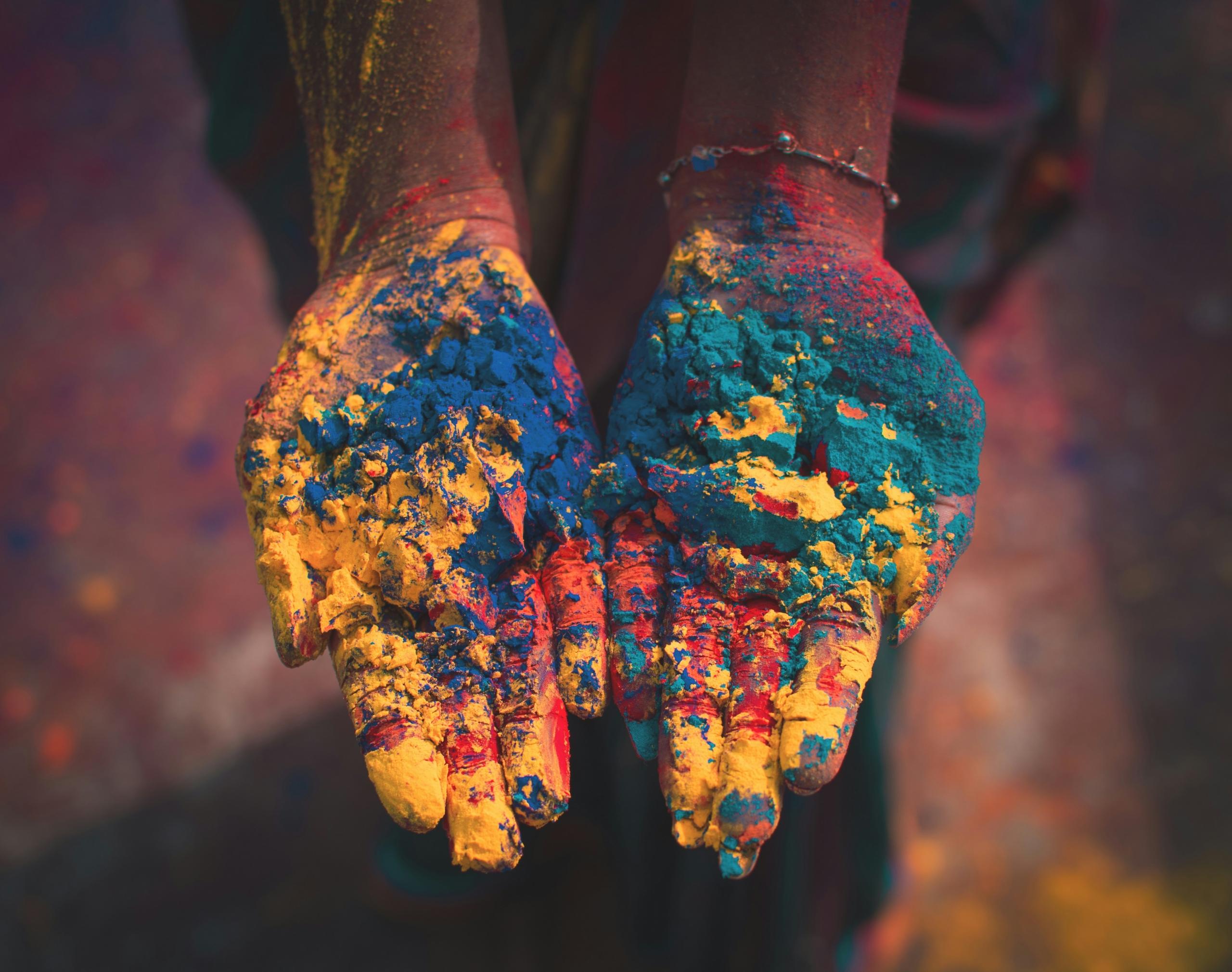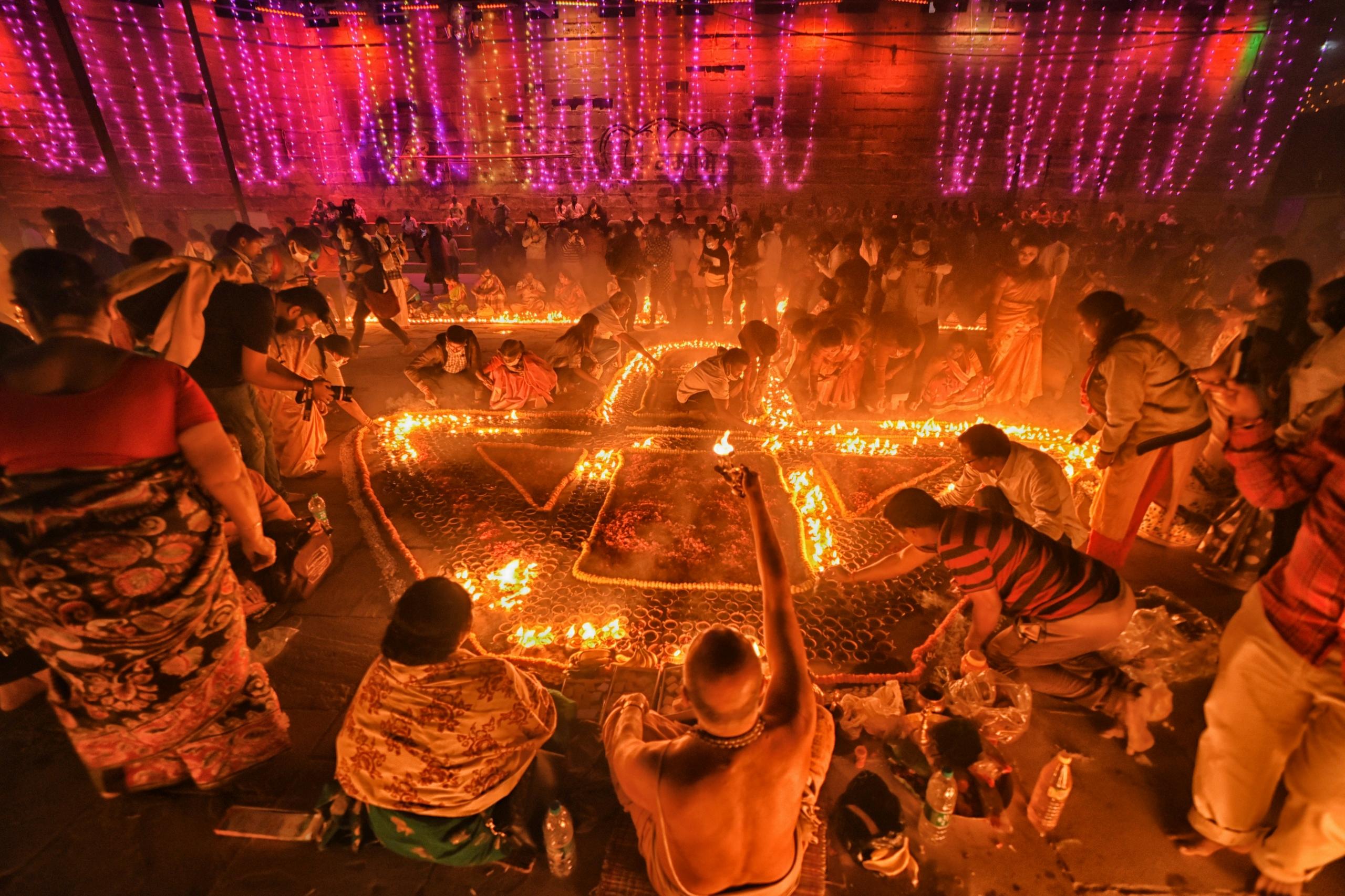Diwali is one of the most important Indian celebrations. It is known as the “Festival of Lights”, and it represents the victory of light over darkness. Over a period of five days, Indian families meet, pray, eat and place clay lamps in front of their houses. This religious festival is not only celebrated by Hindus, but also by other faiths such as Jains, Sikhs and Buddhists.

Celebrating Diwali every year
Diwali is celebrated every year for five days. This major event marks the beginning of the Hindu New Year. During these five days, people wear new clothes, light fireworks and eat together as a family.
Every year, Diwali is celebrated on different dates. This is the equivalent of Holy Week for Christians. Diwali is usually celebrated in October or November, depending on what the lunar chart says. But why is Diwali celebrated. Diwali has a clear meaning: this festival commemorates how the Hindu god Rama and his wife Sita returned to their kingdom in northern India, after being held by the demon king Ravanna.
In tribute to this event, Rama's worshippers set off a magnificent fireworks display. Thus, the answer to the question What is Diwali can be as simple as the festival of the victory of Good over Evil, of light over darkness.
The very word Diwali means “Rows of lighted lamps”. This is why it was later called as “festival of lights”. During Diwali, houses and stores are decorated with candles and multicoloured lights that are kept up for the five days of the celebration. These lights can even be seen from outer space.
People enjoy Diwali by attending prayers at temples, sharing traditional dishes, decorating your home, and spreading joy with friends and family!
How is Diwali celebrated?
Diwali is celebrated with lights and food. The lights come from fireworks and lamps which are sent up to the sky. And the food are sweets and diverse dishes, a wide range of different traditional Diwali recipes. Diwali sweets are bought or prepared at home and are given as gifts to loved ones.
If you want to know how To Celebrate Diwali you should definitely give attention to the sweets. Visitors can try a wide variety of Indian sweets, which are sold in markets and stores all over the country. Some of the favorite sweets are:
| Name of the candy | What they are made of |
|---|---|
| Jalebi | These sweets are fried dough spirals soaked in syrup. |
| Rasgulla | These sweets are made of fresh cheese and syrup. |
| Besan Ladoo | These sweets are a mixture of chickpea flour, sugar, clarified butter and nuts. |
| Burfi | This is an Indian sweet made with milk. |
Celebrating Diwali also means lights to bring prosperity. These lights are known as Diyas. Diyas are a kind of lamps made of clay and oil. They are placed in windows, balconies and around homes, temples and public spaces to bring prosperity and good energies.
Lighting Diyas during Diwali is a tradition, which as we had said, represents the victory of good over evil and the triumph of light over darkness. In addition to Diyas, electric lights and fireworks are also used in order to illuminate and embellish the environments of this festivity.
Cleanliness
Cleanliness is very important during Diwali. It symbolises the purification of space. That is why before the beginning of the celebration, houses and all places are cleaned. Then houses are decorated with flowers, garlands, lamps and traditional rangoli patterns, made with coloured powder, petals and rice.

Trade
Many traders consider this day as the beginning of the new year. Therefore, business people prepare their new business and organise their accounts. During Diwali, commerce becomes active. Many entrepreneurs make investments and do all kinds of business. On the occasion of this festival, families buy new furniture, clothes and jewelry. Diwali is a festival propitious for renewal.
Celebrating Diwali every day
You may be wondering how To Celebrate Diwali every day. Are all days the same during the festival? Well, let's review below what are the activities that take place during the five days of Diwali.
| Day | Name of the day | Activity |
|---|---|---|
| 1 | Dhanteras | On the first day of Diwali, known as Dhanteras, houses are cleaned and people buy ornaments for their families at special Diwali markets. This day is dedicated to the goddess Lakshmi and the god Dhanvantari, protector of medicine. |
| 2 | Choti Diwali | On the second day of the festivities, houses are illuminated with lights and rangoli, elaborate patterns on doorways made of flower petals, colored rice or flour. Diwali sweets are bought or prepared. This day celebrates Krishna's victory over the demon Narakasura. |
| 3 | Diwali | The third day is the main day of Diwali celebration. People visit their families, enjoy food feasts, light diyas in the evening and the sky is illuminated with fireworks. This day is also dedicated to worship the goddess Lakshmi. Businesses do not open. |
| 4 | Padva Padva | Also known as Govardhan Puja and Bali Pratipada. It is the fourth day of Diwali, and celebrates the love shared between married couples, which is expressed through the exchange of gifts. This day is dedicated to Krishna's victory over Indra and the worship of Govardhan Hill |
| 5 | Bhai Dooj | The fifth and last day of Diwali is Bhai Dooj. On Bhai Dooj a special ceremony is held to honor the bond between brothers and sisters. Sisters pray for the welfare of their brothers, while brothers give gifts to their sisters. |
Joy in Hindu hearts
Like all festivals in India, Diwali is full of dance and joy. During the five days of Diwali, music sounds everywhere. People hug each other, congratulate each other, and wish each other wellness, health and happiness.
Variations in the traditions of the festival are found in different parts of India. People travel through the country to appreciate all this diversity. It is important while celebrating Diwali to be aware that if you are traveling to India with small children they may be frightened by the noise and fireworks.
Diwali is celebrated everywhere where Hindus live: in Singapore, Sri Lanka, and even in large western cities with many Indian communities. But, of course, the most vibrant celebrations take place in India itself.
Gifts and good wishes
The exchange of gifts is an important part of the festival. People (locals or tourists) give each other clothes, sweets and jewelry. It is also common to buy new things, especially gold, silver and clothes, to attract good luck and prosperity. On the first day of Diwali, Dhanteras, it is especially popular to buy household items.
Diwali is a time for family gatherings and bonding with loved ones. People visit friends and relatives and together they organise parties and prepare meals. During Diwali, it is common to show generosity and compassion. Many people donate money, food and clothes to the needy. This reflects the festival's idea of doing good. It also reflects, concretely, the triumph of good over evil.
When is Diwali in 2024?
In 2024, Diwali is celebrated from October 29 to November 3, although there is a break in the festivities on October 30. The most important day, Lakshmi Puja, falls on November 1, 2024.
Different version of the origin of Diwali
There is no difference of how To Celebrate Diwali according to the version of its origin. Celebrating diwali the same activities are performed. Anyway let's check another version about the origin of Diwali.
Another version links the festival of Diwali with the defeat of the demon king Narakasura, who brought chaos to the ancient Indian society. This evil character was defeated by Krishna. The burning of an effigy of Narakasura by modern Indians during the celebration represents the events that occurred according to their mythology.
In many parts of India, the goddess of wealth and prosperity, Lakshmi, wife of the god Vishnu, is commemorated during Diwali. According to tradition, she appeared dressed in white from the waters of the ocean of milk, where gods and demons sought the elixir of immortality, amrita.
In eastern India, on the other hand, tribute is paid to the goddess Kali, symbol of strength. It is also typically associated with aquatic motifs; after prayers and rituals, images of the goddess Kali are immersed in pools of water.
Since when has Diwali been celebrated?
The tradition of celebrating Diwali goes back centuries. Today it is difficult to determine when it was first celebrated. However, according to some historians, Diwali may have been celebrated as far back as seven thousand years ago.
Over the years, how To Celebrate Diwali has undergone several changes. Over the centuries, this festival has evolved and incorporated a rich variety of traditions and legends that reflect the cultural diversity of the country. Different aspect the celebration have been past on generation through generation and teaching young students about Diwali is essential to the preservation of these traditions.
However, the essence and symbolism of Diwali remain the same: the victory of light over darkness and good over evil. This celebration serves as a powerful reminder of the importance of hope, resilience, and the triumph of positive forces in our lives.
The festival symbolises the illumination of our hearts and minds, encouraging us to dispel ignorance and negativity. Each flickering lamp and firework represents the joy of knowledge and the pursuit of righteousness, reinforcing the belief that even in the darkest times, light can prevail.
Diwali invites people to reflect on their own lives and the choices they make, fostering a spirit of togetherness and unity as communities come together to celebrate this significant occasion.
Résumer avec l'IA :















